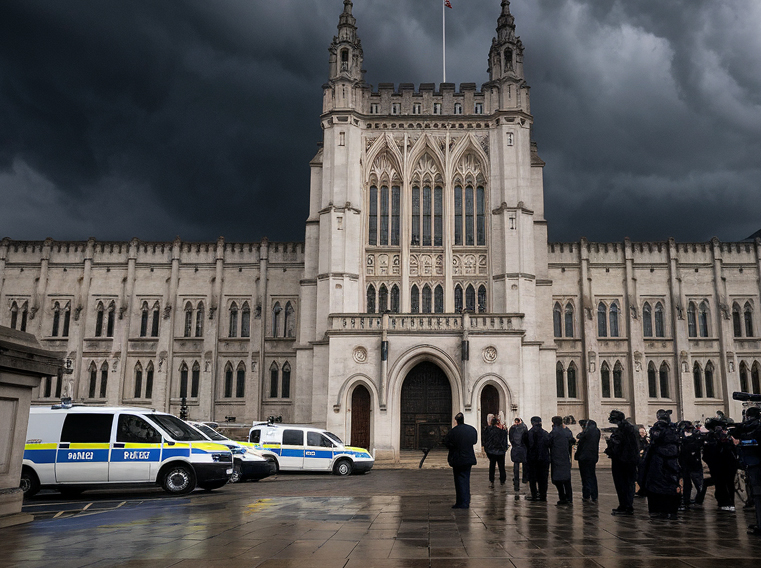From artisanal crepes to rebellious cheesecake waffles, Reading's breakfast rebels are transforming morning meals. These seven spots will revolutionize how you start your day.
In a shocking case that has gripped the community, a teenager from Slough has been handed a 29-year prison sentence for the murder of Cameron Bailey in High Wycombe. The verdict comes after a gruelling nine-week trial at Reading Crown Court, shedding light on the tragic consequences of drug-related violence. The case, which involved a robbery gone wrong, has raised concerns about youth involvement in the illegal drug trade and the devastating impact on families. As the community grapples with the aftermath, questions arise about preventative measures and support systems for at-risk youth.
Details of the Tragic High Wycombe Murder Case
The small town of High Wycombe, Buckinghamshire, has been left reeling from a shocking murder case that culminated in a 29-year prison sentence for a Slough teenager. Jayden Gubetini, the convicted murderer, was found guilty of killing Cameron Bailey during a drug-related robbery that went horribly wrong. The trial, which lasted nine gruelling weeks at Reading Crown Court, unveiled the grim details of the crime that occurred on 31 July 2022.
According to court proceedings, Gubetini, who was 18 at the time of the offence, had travelled from Slough to High Wycombe with the intent to rob Bailey of drugs and money. The confrontation quickly escalated, resulting in Bailey suffering fatal stab wounds. Thames Valley Police launched an extensive investigation, leading to Gubetini's arrest and subsequent conviction.
The sentence, handed down by the presiding judge, reflects the severity of the crime and the devastating impact on the victim's family. In addition to the 29-year prison term, Gubetini will be subject to an extended licence period of five years upon release, underscoring the court's concern about the potential for future offending.
Community Impact and Broader Implications
The tragic case of Cameron Bailey's murder has sent shockwaves through both High Wycombe and Slough communities, raising urgent questions about youth involvement in drug-related crimes. Local authorities and community leaders are now grappling with the challenge of addressing the root causes that lead young people to engage in such dangerous activities.
This case has highlighted the need for improved early intervention programmes and support systems for at-risk youth. Many experts argue that a more comprehensive approach to drug education and awareness in schools could help prevent similar tragedies in the future. Additionally, there are calls for increased funding for youth centres and mentorship programmes to provide positive alternatives for young people who might otherwise be drawn into criminal activities.
The lengthy sentence given to Gubetini has sparked a debate about the effectiveness of harsh punishments versus rehabilitation for young offenders. While some community members feel the sentence serves as a strong deterrent, others argue for a greater focus on reformative justice, particularly for young individuals who may still have the potential for rehabilitation.
As both High Wycombe and Slough come to terms with this tragedy, there is a growing consensus that a multi-faceted approach involving law enforcement, social services, education, and community engagement is necessary to prevent such incidents in the future and to heal the deep wounds left by this senseless act of violence.
A Community at a Crossroads: Lessons and Legacy

The sentencing of Jayden Gubetini to 29 years in prison for the murder of Cameron Bailey marks a tragic milestone for High Wycombe and Slough. This case, born from a drug-related robbery gone awry, has laid bare the devastating consequences of youth involvement in criminal activities and the urgent need for community-wide intervention.
As these towns grapple with the aftermath, a window of opportunity emerges for meaningful change. The shocking nature of this crime could serve as a catalyst for enhanced collaboration between law enforcement, social services, and educational institutions. There's potential to develop more robust early intervention programmes and create safe spaces that steer young people away from crime.
However, this case also poses risks. If left unaddressed, the underlying issues could lead to further tragedies and erode community trust. The challenge lies in balancing punitive measures with rehabilitative approaches, especially for young offenders.
Moving forward, the community faces crucial questions: How can we create an environment where young people feel supported and valued, reducing the allure of criminal activities? What role can each citizen play in mentoring and guiding the next generation?
As High Wycombe and Slough stand at this crossroads, the legacy of this tragic event will be determined by the actions taken today. Will this be remembered as a turning point towards a safer, more inclusive community, or a missed opportunity for change?